Will AI Art Kill Artist's Careers?
-
@davidhohn If a monkey can't own a copyright, then a machine definitely can't





@davidhohn said in Will AI Art Kill Artist's Careers?:
If everything the Ai machine makes is public domain that creates a unending fountain of free art for clients
A close example of this already happening is when fashion studios steals designs from independent creators selling wares on Esty. Who enacted the actual theft (CEO, art director or junior designer) is still a mystery. This sort of behavior is rare (I think).
I would have thought with the invention of Google and Artstation, there would be a flood of independent game developers blantantly ripping assets from old games and portfolios. But most people do the honest thing and buy stock assets.
Then again, most video content creators take images and music and only compensate the artist by dropping a name credit. So... I think society can go either way. But, with the new generation growing up expecting content for free, I'm not optimistic.
-
I can see how you got there, but I don't think you can replace "Ai" with "Adobe" or "Procreate"…That is, the input that creates the final image are physical actions made by the artist…The program itself doesn't make artistic choices the artist does… By comparison the Ai program simply requires the user to be able to type two or three words into a text field and then the program takes over and makes all artistic choices from there.
Ah, I see where I misunderstood. True, AI is a tool but not the same as artist’s tools like Photoshop and a pencil.
Copyright is designed to protect the physical manifestation of artistic choices.
Or perhaps the current equivalent is if someone creates fan art that is so convincing that people confuse the fan art-creating artist for the original artist. For example, if someone creates a tiger friend for Hobbes in Calvin and Hobbes and sells merchandise. Just thinking out loud. I’m sure I’m missing something obvious here
This is also an interesting scenario, but I'm not sure I understand what you are getting at. Can you rephrase?
Someone or something (an AI tool) creates something that is so convincing that people think it’s official merchandise. “Create this Disney-like character doing this specific pose”. That kind of thing.
-
According to the Dall-E terms of use, the company OpenAI owns the "generations" (aka the image) but gives the users rights. It also states they will not assert copyright claims to the generation, but that doesn't mean they concede that the user has copyright claim.
That’s pretty scary. Someone ends up creating work that is like you drew it but you can’t do anything about it. The company you mentioned would own the copyright. Just now I’m thinking of how someone can make a character in the style of The Simpsons. But I don’t think this is an exclusively AI issue. The guys mentioned something like this on the episode. You can’t copyright a style

Terms of agreement on a pencil... That would be a funny New Yorker comic


-
If a monkey can't own a copyright, then a machine definitely can't





But a corporation can. Disney is a great example of how they keep extending copyright laws. So once Meta starts incorporating AI art creation tools in its products…
Then again, most video content creators take images and music and only compensate the artist by dropping a name credit. So... I think society can go either way. But, with the new generation growing up expecting content for free, I'm not optimistic.
I’m definitely listening to the previous episode again

-
Has anyone tried creating images on anything other than Mid Journey? I want to try playing around with this to learn more about it and I'm not quite sure where to start! There seems to be several options.
-
@davidhohn do you think there is an argument for copyright issues within these two images? Apparently this image (the bottom one) won a contest in the digital art category even though it is A.I. created and not modified after. The top image is from the most recent Dune film.
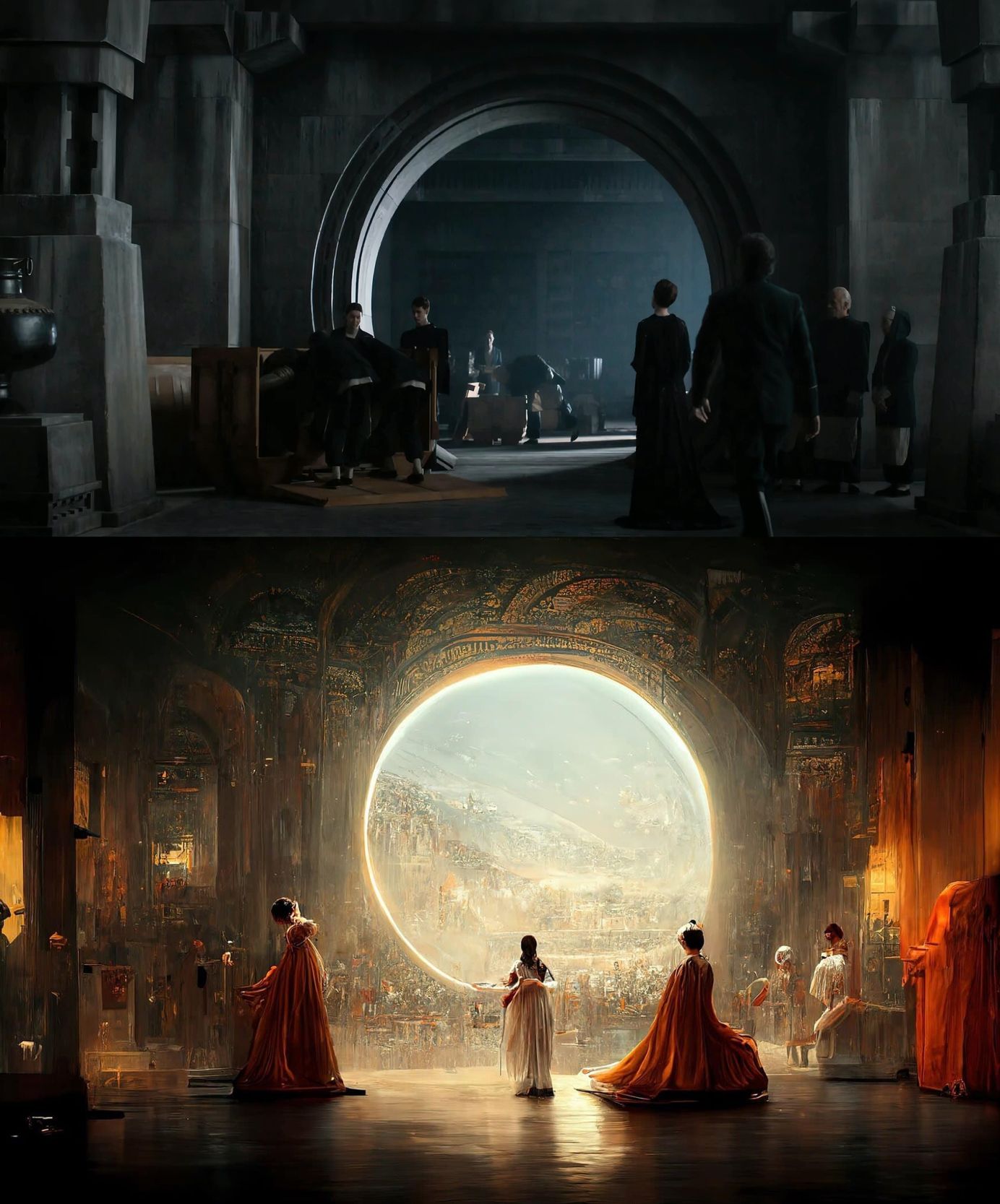
-
@Aaron-Cutright you can’t copyright composition, so there is absolutely no issue between these two images.
-
Loved this episode. So much to discuss on this topic.
One thing that came to mind for me is what if AI art was better than humans. For example let’s say an art director instructs both an illustrator and an AI and the AI creates artwork in the same style as the illustrator but even better. I think this could put a lot of concept artists in trouble. Maybe it would mean that there are only art directors and they just direct a bunch of AI but I think more narrative based illustration is where the difference is.
I think part of the reason that people like stories is because they know it comes from a real live person and that counts for a lot. There are plenty of fake wood products, sometimes you really can’t tell the difference between the real and the fake but that doesn’t matter to people. If given the choice they would always rather have the real deal.
-
@Griffin-McPherson said in Will AI Art Kill Artist's Careers?:
I think this could put a lot of concept artists in trouble.
You're not the first person I've read with this sentiment.
I had a classmate in college who wasn't the best draftsman, but beat us all at getting into a game studio. He was a rare asset for having served in the military during wartime. He had operated with military hardware and understood procedures. I've been in the hot seat at meetings where I had to explain my choices with mood boards. Love to see someone solely relying on AI Art for their career sweat it out.
Also consider there has to be someone to design the layout of a stage and props. For example, you can have the software generate an image of a tank, but it won't know what reactive armor is and why it is located at certain points. What if blueprints for the interior are needed? Would it factor in how a human being fits and manuever inside it? Even human designers forget that part.
Art directors don't hire people because they draw well and fast. They trust each member of the team to have different set of knowledge. A concept artist needs to be able to answer what kind of materials would be used to make a costume, cultural significance, etc. If the art director doesn't care about any of this, then I guarantee production will suffer, costs go up and maybe make for a bad movie.
As for environmental concept art, I think you still need a person who understands geology and geography. And if not, at least consider how a set still needs to be built. The director will always have notes making edits necessary.
So, I think AI Art will help concept artist get better at their jobs. Having as well technical skills and a curiousity to learn would make for a better employee.
-
@danielerossi But even the most convincing fan art that people think is original is bordering on the "is it fan art or plagiarism" line. A student could write an exact replica of a professional's paper/book and claim it as their own, but that doesn't mean just because they wrote it they have any claim to it. To me, fan art isn't making an exact replica, it's being inspired by it. Beyond that, fan art is still one of those weird categories where some companies do C&D's and don't allow creators to do it, while others simple don't care. In the case of AI, to me a copyright can't be held by a machine.
Personally I still don't think AI will kill artist jobs, at least not yet like Jake said. What irritates me is people getting judged for their AI art on the same level as digital artists who spend hours on their work. I'm sorry, they're not the same at all. As someone who has to deal with digital art getting dimissed when compared to "real" fine art, the idea that once again our work can be dismissed irritates me.
-
@Lee-White I agree that composition should not be copyrightable, I had just run into that claim a lot in school with teachers forcing students to do assignments over because of the composition being too similar to another artist; I thought it was odd even back then.
-
@Jake-Parker I don't have an issue with AI as a tool, I don't really even have an issue with AI as an artist. The biggest issue I am currently struggling with is that people are feeding it prompts and then taking the piece that is created and claiming they are the artist.
I see it as similar to if I commissioned an art piece from an artist with specific prompts and then just walked around saying I am the artist because it was my idea. If I submitted art to a contest like this there is no way it would fly, but for some reason people are getting away with it when using AI and it is very strange to me.
-
I'm not at all sure corporations will rush out to use AI-generated artwork, as they ultimately won't have the capacity to do with it what they want. Why would anyone use AI art for anything identified with a brand (or frankly, anything with any specificity) when they can't control the use of that imagery? Anyone can then use that same image, modify it however they want, and sell it. There's no point to using it--you can't do licensing and you can't sell it in stores fast enough before knock-offs are generated, you can't develop and own looks or styles or characters or... It's just not viable.
Could there be children's books with AI art? Self-publishers and companies that produce public-domain stories with public-domain art might try, but why bother when anyone can reproduce it and sell it themselves (at least as I understand it right now)? Those sales are very very low hanging fruit... I'd think it could only be a novelty for the same reason those kinds of works aren't mainstream and taking over the market today.
The plethora of public domain artwork available for free already is not really a viable corporate resource...
At this point, it feels like AI art is sorta the Crown Books of art resources.
-
@Aaron-Cutright I agree with Lee. Copyright infringement is based on a variety of factors. A similarity between compositions wouldn't be enough to make an infringement claim.
-
An interesting article about artists Greg Rutkowski, Karla Ortiz and others who feel directly affected by the rise in AI art.
Rutkowski was initially surprised but thought it might be a good way to reach new audiences. Then he tried searching for his name to see if a piece he had worked on had been published. The online search brought back work that had his name attached to it but wasn’t his.
“It’s been just a month. What about in a year? I probably won’t be able to find my work out there because [the internet] will be flooded with AI art,” Rutkowski says. “That’s concerning.”
-
@Jake-Parker Great podcast, per usual. I'm not happy with AI acting like an artist. It terrifies me. I was playing with Midjourney this evening and created interesting artwork in 15 minutes. AI will improve beyond our wildest dreams (at the moment, it's a little wonky) and art directors will use it to save themselves time and money galore! I could see it being very useful in the ad agency realm. The future art director using AI prompts, will have many illustration comps, fully rendered in various styles, ready for client review within a few hours. Using a traditional artist would take weeks. The time saving factor is mind blowing!
Samples I created with Midjourney. (15 minutes of rendering time.)
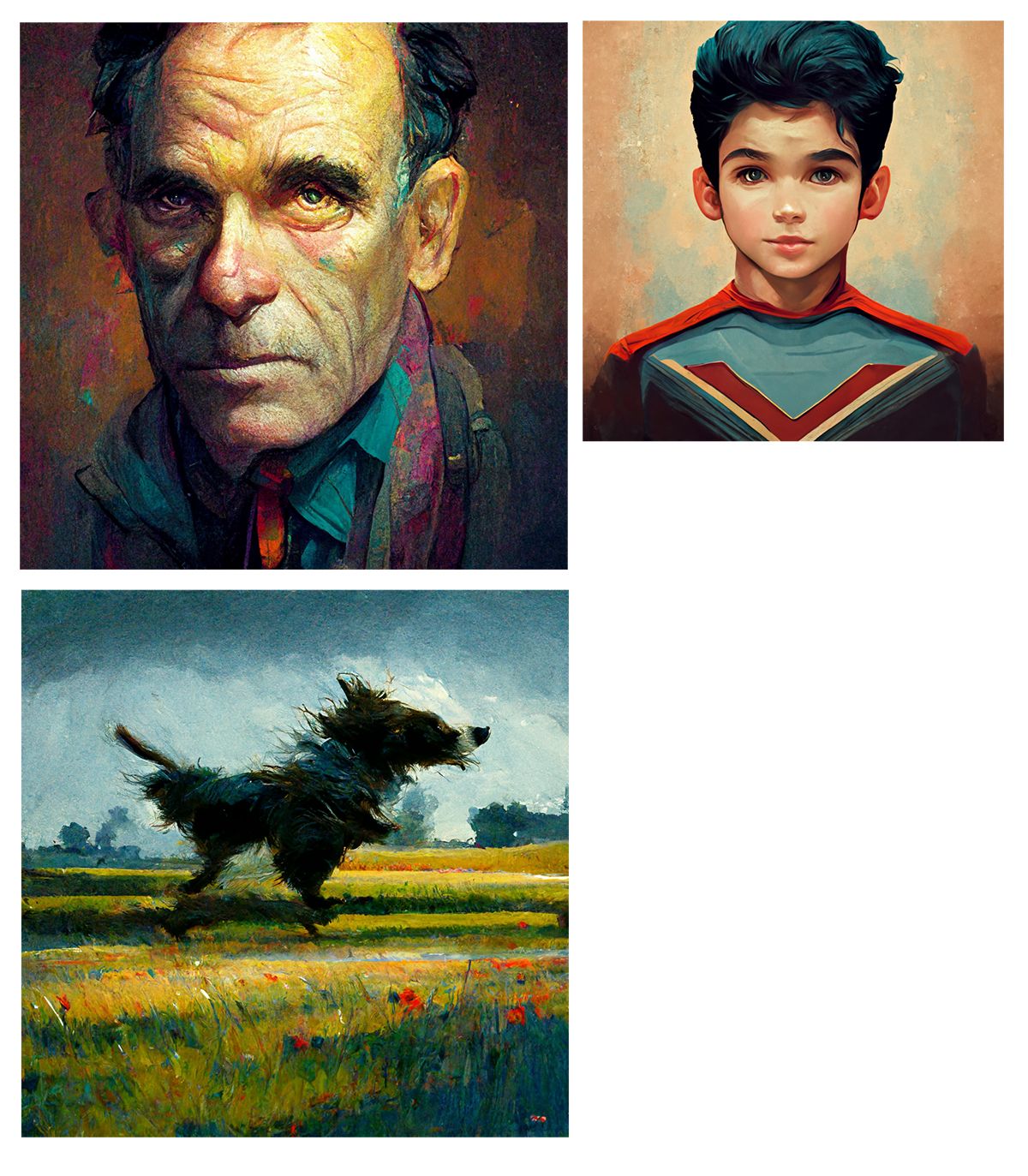
-
I’m looking forward to listening to this episode.
I dabbled in midjourney free trial to check it out and thought some of the output was pretty interesting.
I can see AI being helpful for ideas and mood boards, but disagree that it will make artists obsolete.
Prompt: Wizard uses mirror magic to spin world in mid century castle.
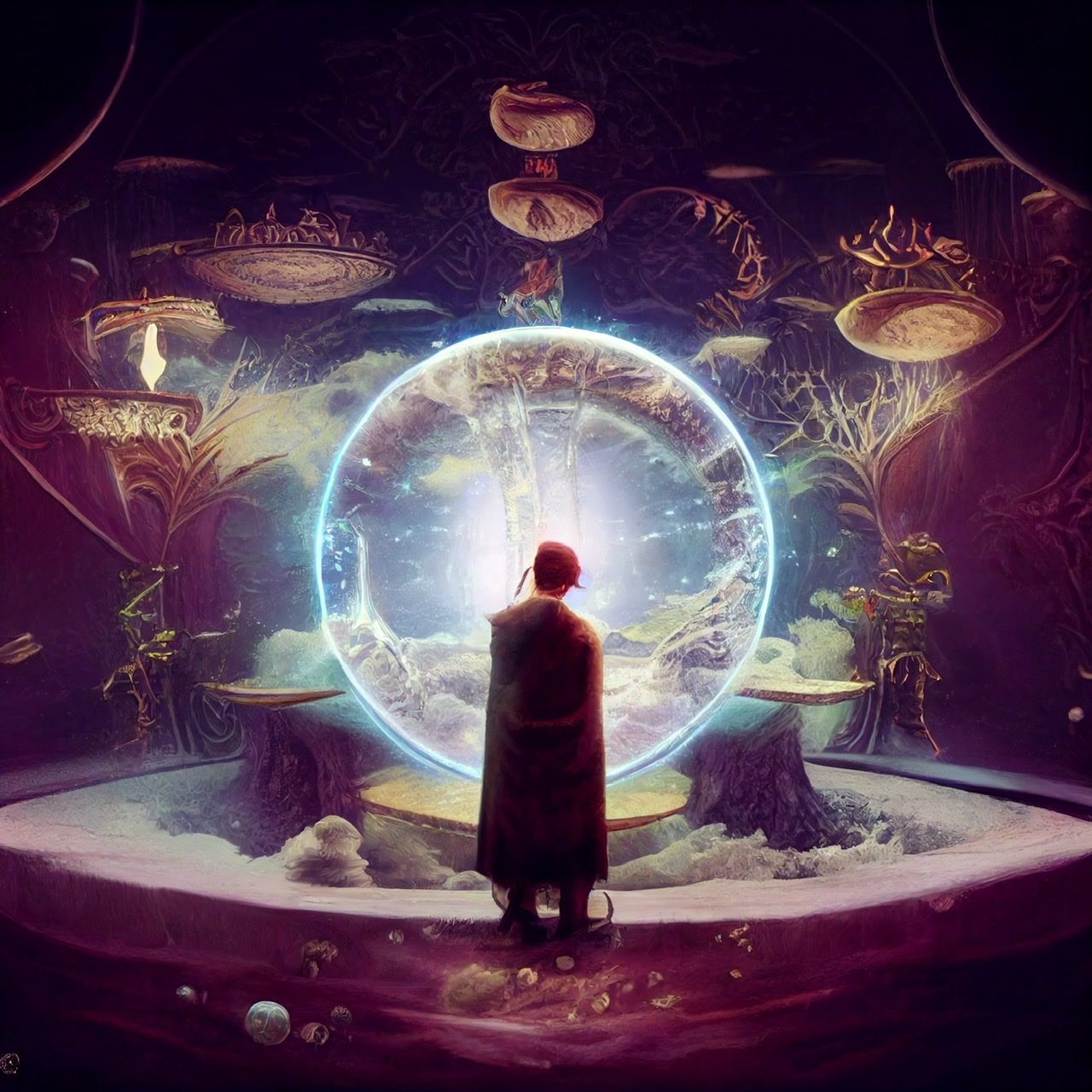
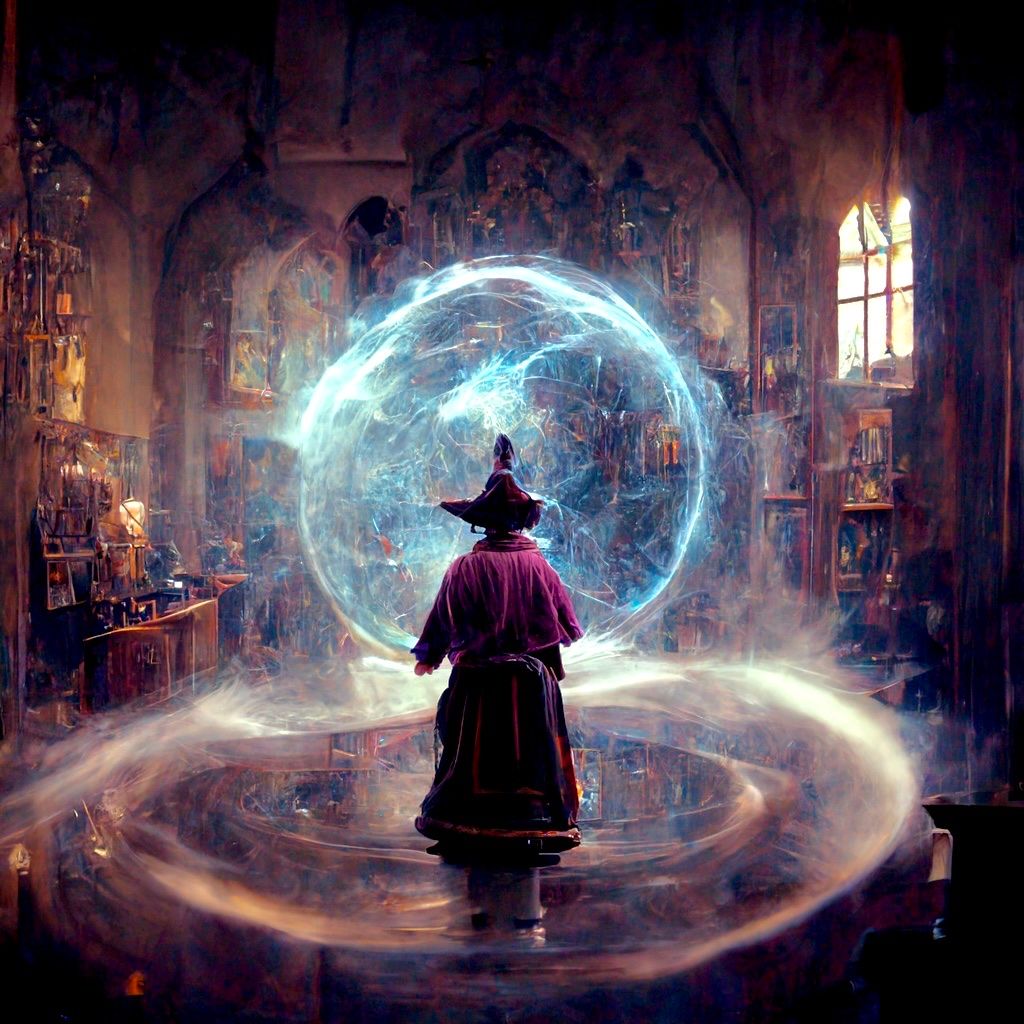
-
I see AI art programs like Midjourney as a cool toy, I loved dabbling with it. It doesn't do much for me other than being a very cool piece of tech. Here are two pieces I made today in Midjourney while listening to the episode
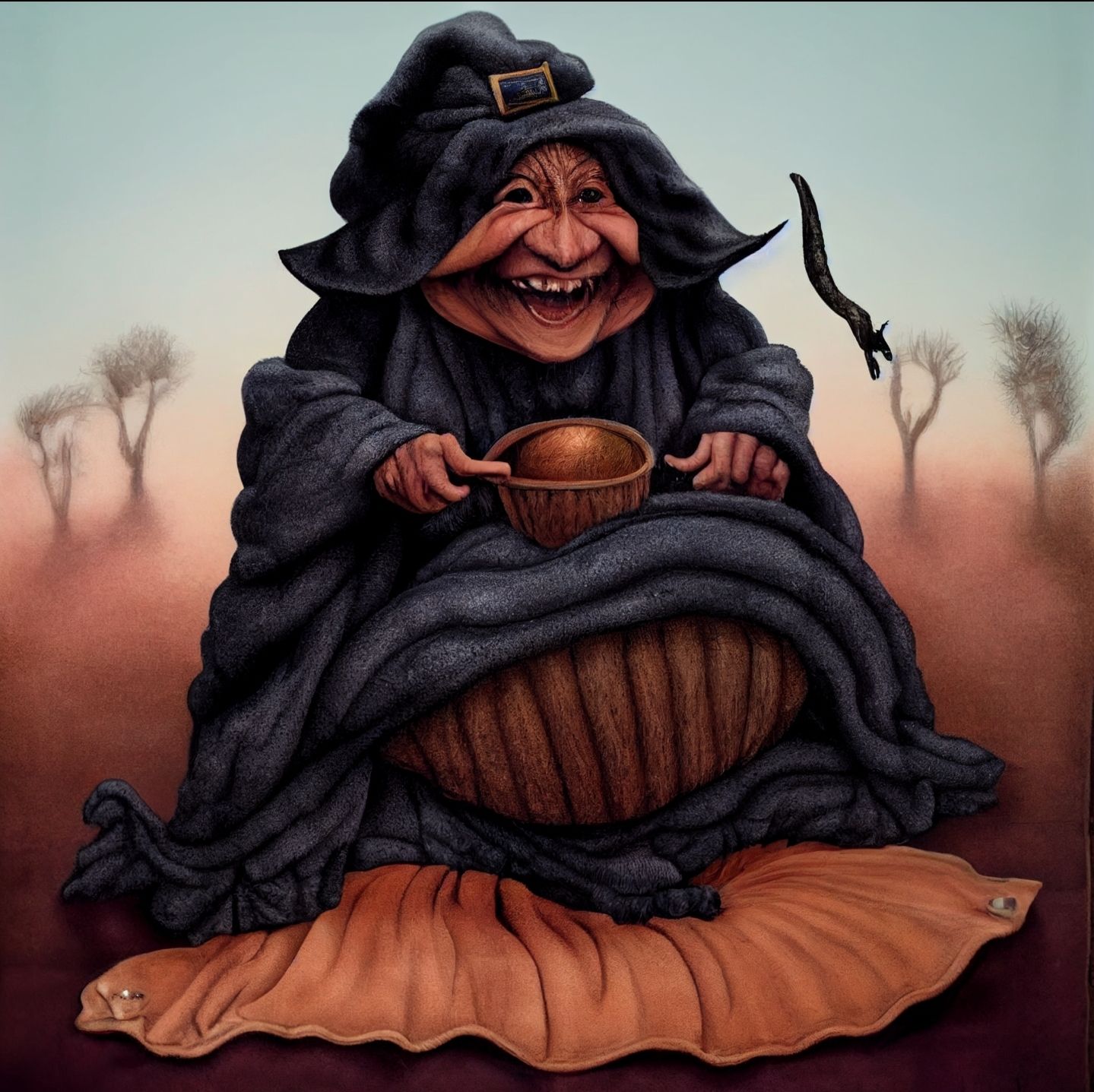
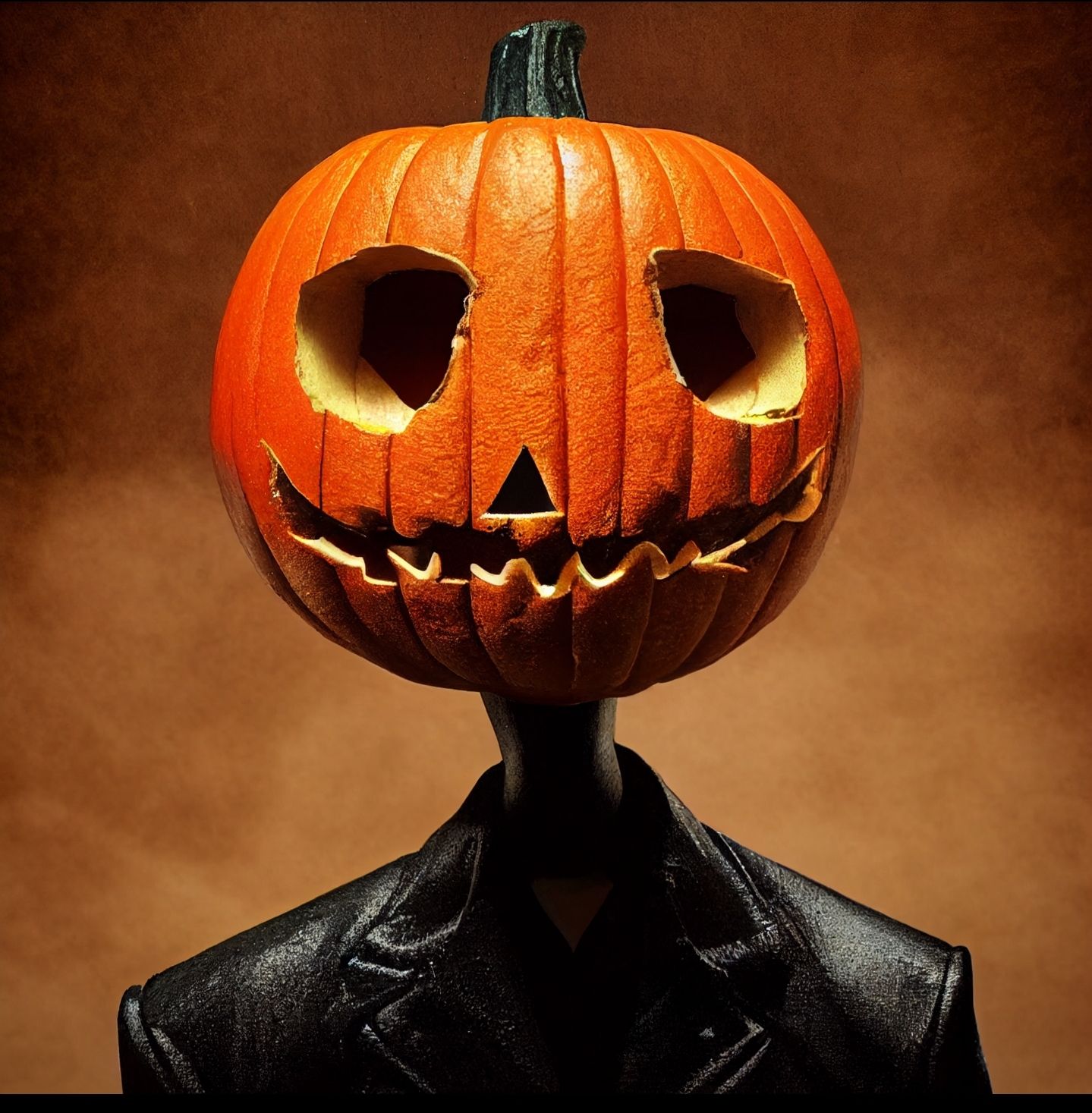
-
@danielerossi said in Will AI Art Kill Artist's Careers?:
Someone or something (an AI tool) creates something that is so convincing that people think it’s official merchandise. “Create this Disney-like character doing this specific pose”. That kind of thing.
Before that even happens we'll already see Disney's army of lawyers strong-arming the copyright laws to cover themselves — the way they always do. Thing is, what's left to the rest of artists who barely get by and can't afford to have an army of lawyers defending them or their creations at every step...
-
@davidhohn I just read this article this morning. It's taken me down some interesting thought avenues today. I know that you can't really copywriter a style, and that makes since for art that is produced solely by humans. Artists copy and learn from each other all the time, but when we do, the vast majority of us make changes and tweaks to fit our own personal taste. I don't think that anyone has become really famous or successful, simply by copying the exact style of another artist. And so, you could say that no human artist exactly copies another's style, because we all have unique tastes and abilities.
But if I understand this correctly, AI art can copy exactly the style of a famous artist, to the point where it harms that artist. Does anyone think that this is a valid concern? Or will the factors mentioned above, such as not being able to copywriter (for now) the AI art, needing the perspective of a human artist, etc, serve to protect artists?
It is disturbing to think that an artist, who has spent years honing their craft and mastering their style, can essentially have that style "stolen" by an AI generator. Someone with access to AI can, in a matter of minutes or hours, produce all the images they like in the style of an accomplished artist. And the original creator of that art style would have no say or ownership over what happens with those images. It feels almost like the computer (or whoever is inputing the prompts) is preying on human creativity. Artists create and think and imagine, and then the computer simply steals all these ideas and regurgitates them in a way that looks truly amazing! You can't have great AI art without great human artists to create the original images.